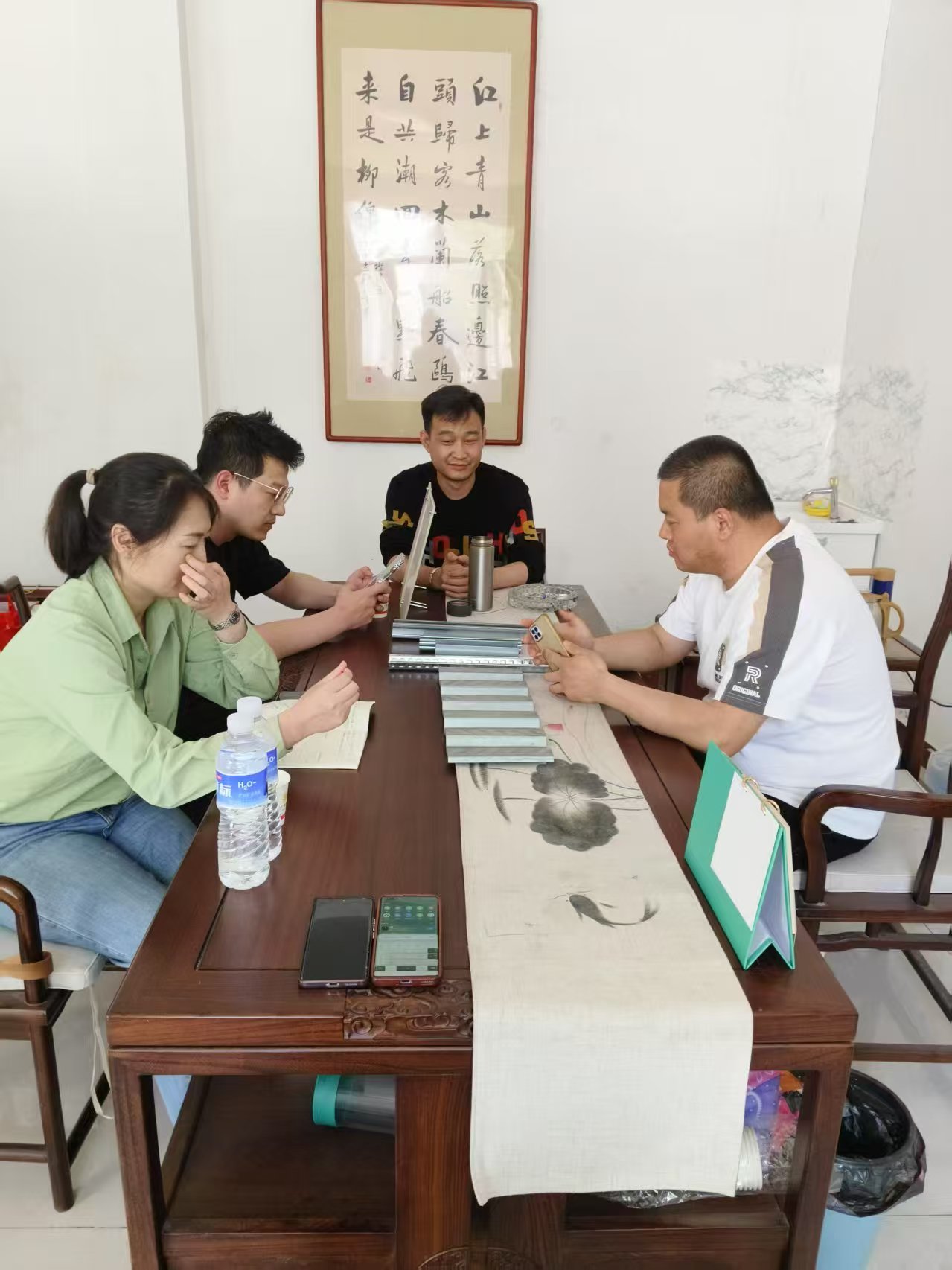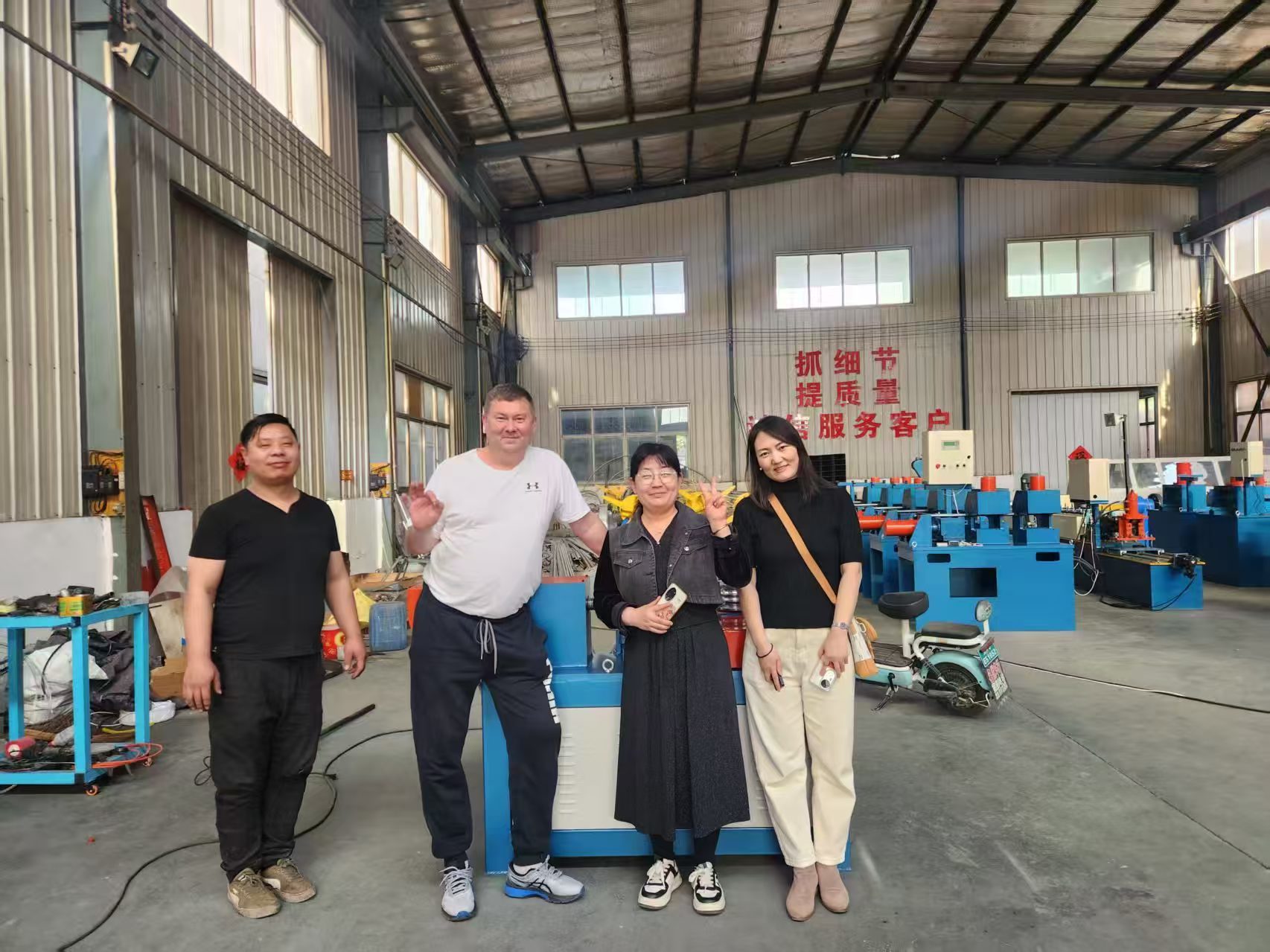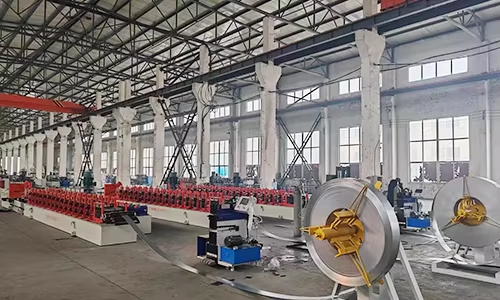Unlocking Efficiency: The Comprehensive Benefits of a Roof Tile Forming Machine
2025-07-15
Unlocking Efficiency: The Comprehensive Benefits of a Roof Tile Forming Machine
Table of Contents
1. Introduction to Roof Tile Forming Machines
2. The Importance of Roof Tile Forming Machines in Metal Manufacturing
3. How Roof Tile Forming Machines Work
4. Key Benefits of Using a Roof Tile Forming Machine
4.1 Enhanced Efficiency and Productivity
4.
Unlocking Efficiency: The Comprehensive Benefits of a Roof Tile Forming Machine
Table of Contents
- 1. Introduction to Roof Tile Forming Machines
- 2. The Importance of Roof Tile Forming Machines in Metal Manufacturing
- 3. How Roof Tile Forming Machines Work
- 4. Key Benefits of Using a Roof Tile Forming Machine
- 4.1 Enhanced Efficiency and Productivity
- 4.2 Cost-Effectiveness Over Time
- 4.3 Improved Quality of Roof Tiles
- 4.4 Versatility and Customization
- 5. Applications of Roof Tile Forming Machines
- 6. Considerations When Choosing a Roof Tile Forming Machine
- 7. Maintenance Tips for Roof Tile Forming Machines
- 8. Frequently Asked Questions
- 9. Conclusion
1. Introduction to Roof Tile Forming Machines
Roof tile forming machines are essential tools in the metal manufacturing industry that streamline the production of high-quality roofing materials. Designed to create various types of roof tiles, these machines offer a host of benefits that enhance the overall efficiency of the production process. With advancements in technology, roof tile forming machines have become increasingly versatile and user-friendly, making them a vital investment for businesses in the metalworking sector.
2. The Importance of Roof Tile Forming Machines in Metal Manufacturing
In today's competitive market, efficiency and quality are paramount to the success of any manufacturing operation. Roof tile forming machines play a crucial role in achieving these objectives. They contribute not only to the speed of production but also to the standard of the finished products. Investing in a reliable roof tile forming machine can lead to significant long-term benefits, including reduced waste, increased output, and enhanced customer satisfaction.
3. How Roof Tile Forming Machines Work
Roof tile forming machines utilize a series of processes to transform raw metal materials into finished roof tiles. The process typically includes:
1. **Material Feeding**: The raw material, often in the form of steel coils, is fed into the machine.
2. **Forming and Shaping**: The machine employs rollers and molds to shape the metal into tile forms. This stage is crucial, as it determines the shape and design of the final product.
3. **Cutting**: Once the tiles are formed, they are cut to the desired lengths. This ensures uniformity and precision in size, which is critical for installation.
4. **Finishing**: Lastly, the tiles may undergo various finishing processes, including coating or painting, to enhance durability and aesthetics.
This automated process not only speeds up production but also minimizes human error, ensuring a consistent and high-quality output.
4. Key Benefits of Using a Roof Tile Forming Machine
4.1 Enhanced Efficiency and Productivity
One of the most compelling benefits of utilizing a roof tile forming machine is the significant increase in efficiency and productivity. These machines can produce a large number of roof tiles in a relatively short time, allowing manufacturers to meet increasing demand without compromising quality. The automation of the process reduces labor costs while increasing output, making it an attractive investment for any business.
4.2 Cost-Effectiveness Over Time
While the initial investment in a roof tile forming machine might be substantial, the long-term savings are undeniable. By streamlining production, businesses can lower operational costs over time. Reduced labor and material waste contribute to a more cost-effective manufacturing process. Additionally, the durability and reliability of these machines often result in fewer repairs and replacements, enhancing their overall cost-effectiveness.
4.3 Improved Quality of Roof Tiles
The precision involved in the roof tile forming process leads to a higher quality product. Automated systems ensure that each tile meets strict specifications, resulting in fewer defects and a lower rate of returns. This consistency contributes to a better overall reputation for manufacturers, as customers are more likely to trust products that demonstrate quality and reliability.
4.4 Versatility and Customization
Roof tile forming machines offer remarkable versatility, accommodating a variety of tile designs and materials. Manufacturers can easily switch between different tile styles and sizes, allowing them to cater to diverse customer preferences. This level of customization can give businesses a competitive edge by enabling them to offer unique products that stand out in the market.
5. Applications of Roof Tile Forming Machines
The applications of roof tile forming machines extend beyond just the production of roofing materials. These machines are utilized in various industries, including:
- **Residential Construction**: Providing durable and aesthetically pleasing roofing solutions for homes.
- **Commercial Buildings**: Offering high-quality roofing options that meet specific building codes and regulations.
- **Renovation Projects**: Supplying replacement tiles for existing structures during renovation or restoration projects.
The ability to produce tiles suited for a wide range of applications makes roof tile forming machines a valuable asset in the metalworking industry.
6. Considerations When Choosing a Roof Tile Forming Machine
When selecting a roof tile forming machine, several factors should be taken into account:
- **Production Capacity**: Assess the machine's output to ensure it meets your production needs.
- **Material Compatibility**: Verify that the machine can work with the types of materials you intend to use.
- **Customization Options**: Look for machines that allow for easy adjustments in tile design and size.
- **Manufacturer Reputation**: Research the manufacturer’s reputation for reliability and customer service.
- **Maintenance Requirements**: Consider the machine's maintenance needs and ensure you have access to support and parts.
Choosing the right machine can significantly impact your production efficiency and product quality.
7. Maintenance Tips for Roof Tile Forming Machines
To ensure the longevity and optimal performance of your roof tile forming machine, regular maintenance is essential. Here are some tips to help keep your equipment in top condition:
- **Routine Inspections**: Regularly check for signs of wear and tear, particularly on moving parts.
- **Lubrication**: Keep moving parts adequately lubricated to reduce friction and wear.
- **Cleaning**: Maintain a clean machine environment to prevent dust and debris from interfering with operations.
- **Calibration**: Periodically calibrate the machine to ensure it produces tiles within the desired specifications.
Investing time in maintenance can lead to fewer breakdowns and a longer lifespan for your machine.
8. Frequently Asked Questions
1. What types of materials can be used in roof tile forming machines?
Roof tile forming machines primarily use steel, but they can also work with other metals like aluminum and copper, depending on the machine's specifications.
2. How long does it take to set up a roof tile forming machine?
Setup time varies by machine model, but most can be operational within a few hours to a day, including calibration.
3. Are roof tile forming machines energy-efficient?
Yes, modern roof tile forming machines are designed to be energy-efficient, often utilizing advanced technology to minimize power consumption.
4. Can I customize the size and shape of the tiles produced?
Absolutely, many roof tile forming machines offer adjustable settings that allow for customization in tile size and shape.
5. What is the average lifespan of a roof tile forming machine?
With proper maintenance, a roof tile forming machine can last anywhere from 10 to 20 years, making it a long-term investment for manufacturers.
9. Conclusion
Investing in a roof tile forming machine is a strategic decision that can significantly enhance operational efficiency in the metalworking industry. From increasing productivity and reducing costs to improving product quality and offering customization options, these machines provide numerous benefits that are hard to overlook. As the demand for high-quality roofing materials continues to rise, utilizing advanced forming technology not only meets market needs but also positions businesses for future success. By understanding the key features and advantages of roof tile forming machines, manufacturers can make informed decisions that lead to sustainable growth and improved competitiveness in the market.
Key words:
RELATED INFORMATION
Recently, foreign trade personnel have conducted on-site learning on the company's equipment updates
Recently, foreign trade personnel have conducted on-site learning on the company's equipment updates
2025-05-15
A customer from Inekhusko, Russia, took a 10-hour flight with multiple transfers to visit our factory and inspect the equipment they had previously ordered from our company.Our foreign trade staff warmly received the customer.
2025-04-24
Photovoltaic bracket equipment is a special bracket planned for the placement, installation.
2024-05-22








